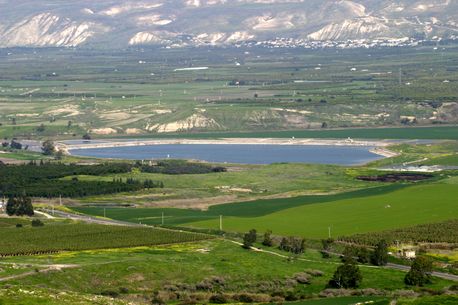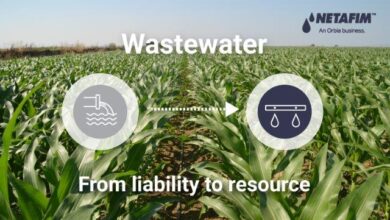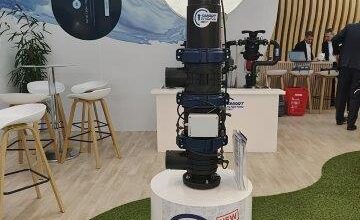
Reductions in the water allocations for irrigation and increased costs in recent years have driven the Golan Research Institute to the forefront in research to increase water exploitation in irrigating orchards and groves.
Dr. Naor who is a senior researcher at the Institute outlines current research on irrigation, which he and his colleagues are developing in the Golan Heights and elsewhere throughout Northern Israel.
Dr. Naor explains his research: “After working on research on the irrigation of deciduous fruit trees from the early 1990s onwards, in the past decade I have broadened the extent of my research to include additional species such as almonds, olives, citrus fruit, avocado and mango.”
Dr. Naor noted that the logistic assistance provided by the Northern R&D was an essential factor in the research work as far as the species and the distribution area are concerned The Breakthrough: The “Keitt” crop increased five fold. Naor: “The highly successful irrigation experiment on Mango in the Beticha Valley during the 1990s achieved a five-fold increase in the yield of the “Keitt” variety while doubling the irrigation measure from 500 to 1,000 mm per season.
Following years of drought during the 1990s coping with cutbacks in the water allocated for irrigation became our principal task. We adapted the available water allocation to a reduced number of apples on the trees or a similar reduction in olive groves for oil production.
We found that although the overall yield obviously dropped we could obtain fruit of a marketable size using this method.
However, this method failed to meet our expectations for some fruits with a high irrigation demand. “We are leading partners in a continuous global effort where the most effective instrument in controlling irrigation was found to be the portable pressure chamber.
Despite its disadvantages, this instrument has been widely used in Northern Israel, especially in deciduous fruit orchards. Precision irrigation for each individual tree. “Motivated by the huge increase in water costs the next quantum leap in saving water is precision irrigation for each individual tree or group of trees, which takes into account the differences within the orchard or grove concerned.
Even though uniform irrigation in an orchard where such variations exist is uneconomical, presently the farmer lacks effective tools to remedy the situation.
The integration of a large number of sensory and control instruments to manage precision irrigation includes individual measurements in the field, aerial photographs and an analysis of past data. We intend to develop a system to support the relevant decisions and handle a profusion of data, present the farmer with only relevant data in a simplified format and guide him through a decision-making process.”





